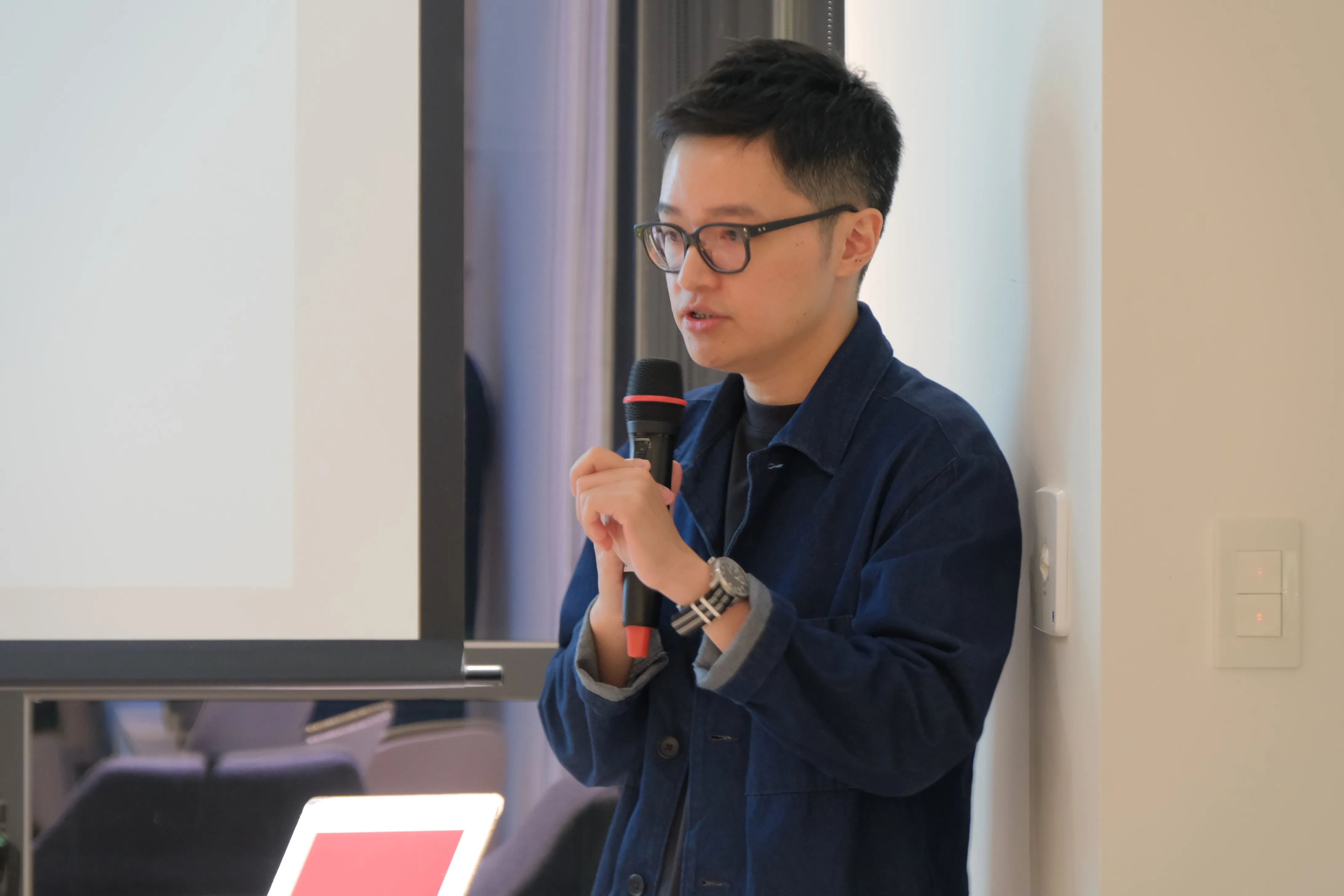
Chanyu Ding, Project Manager, Zeczec
Chanyu Ding holds the position of Project Manager at Zeczec. With a background in Ocean Engineering from the esteemed National Taiwan University, Mr. Ding further pursued his education in the field of Innovation Engineering, completing the Master's program at the renowned Royal College of Art in the UK. Previously, he served as the Product Director at XO International and as a Product Designer at Studio XO. Throughout his career, Mr. Ding has seamlessly transitioned between engineering and design roles, lending his expertise to diverse teams and actively engaging in the realm of crowdfunding. Over the past seven years, he has been instrumental in incubating numerous new projects, leaving an indelible mark on the innovative landscape.

In the final course of the program, we had the privilege of hosting Mr. Ding, a senior project manager at Zeczec with extensive experience in crowdfunding. His session focused on enlightening students about the significance of crowdfunding for NPO/NGO organizations, sharing compelling case studies from his past involvements, and imparting valuable insights on crafting crowdfunding proposals that resonate with audiences. As the students were nearing the completion of their internships, the timing was ideal to delve deeper into the realm of crowdfunding. While crowdfunding serves as a vital public communication channel for NPO/NGO entities, launching a successful campaign may still be unfamiliar territory for students. Thus, our aim with this course was to equip students with a comprehensive understanding of the multifaceted challenges faced by NPO/NGO organizations in the context of crowdfunding, fostering their ability to navigate and contribute effectively to the sector.
Mr. Ding underscored the paramount importance of fundraising for NPO/NGO organizations. Beyond serving as a critical source of funding, crowd fundraising also brings forth numerous benefits such as accessing additional resources, bolstering the organization's external brand image, and fostering a deeper understanding of the target audience. Drawing from his seven years of experience, Mr. Ding shared his keen observations on public participation in fundraising projects and provided insights on identifying the right audience. To facilitate students' comprehension, Mr. Ding presented three compelling case studies from the realm of NPO/NGOs, meticulously analyzing the factors that contributed to the success of each fundraising initiative. As the class drew to a close, Mr. Ding succinctly summarized the key takeaways for students, emphasizing essential points to consider within each project section, ensuring a lasting impression and valuable lesson for all.
Given the constraints of the topic, it proved challenging for students to engage in practical exercises related to the subject within the limited class time. To address this limitation, the instructor dedicated 20 minutes for a stimulating Q&A session with the students. Remarkably, more than one-third of the participants eagerly raised their hands, displaying their enthusiasm and eagerness to seek clarification. Among the inquiries, Hicham from Belgium posed an intriguing question to Mr. Ding, questioning the substantial upfront investment made by many NPO/NGO organizations in fundraising efforts without necessarily generating an equivalent amount of funds. In response, Mr. Ding offered a fresh perspective on the matter. He drew a parallel by comparing fundraising to the sales department of a for-profit enterprise, which incurs costs to generate revenue. While the costs associated with the business department's activities are seldom scrutinized, fundraising expenses within non-profit organizations often face scrutiny. Thus, Mr. Ding posited that further discussion is warranted to determine the cost-effectiveness of the financial and human resources invested by NPO/NGOs in fundraising endeavors. This insightful response prompted thought-provoking discussions among the students.
Although the course was quite serious and had relatively few interactive sections, the students indicated in the feedback that they learned a lot from the course. Also, they saw more fundraising possibilities from different examples, and realized the importance of fundraising issues. Overall, the students acknowledged the course as an impactful and worthwhile experience that enriched their understanding of fundraising dynamics.

#ShareAGoodStory #SDG8 #ThinkSustainably